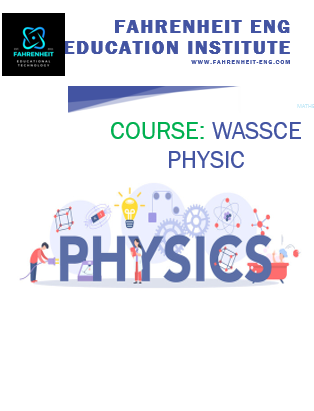Physics

About Course
The study of physics is a fundamental scientific discipline that explores the nature and behavior of matter and energy throughout the universe. It seeks to understand the most basic principles governing the natural world, from the smallest subatomic particles to the largest cosmic structures.
Potential career paths for physics graduates:
- Traditional Physics Careers:
- Research Physicist (in academia, government labs, or industry)
- University Professor
- High School Physics Teacher
- Astronomer or Astrophysicist
- Engineering and Technology:
- Aerospace Engineer
- Optical Engineer
- Nuclear Engineer
- Materials Scientist
- Robotics Engineer
- Quantum Computing Researcher
- Data Science and Computing:
- Data Scientist
- Machine Learning Engineer
- Software Developer (especially in scientific computing)
- Computational Physicist
- Finance and Economics:
- Quantitative Analyst (“Quant”)
- Financial Modeler
- Risk Analyst
- Actuary
- Healthcare and Medical Physics:
- Medical Physicist (working with radiation therapy, medical imaging)
- Biophysicist
- Health Physicist (radiation protection)
- Energy Sector:
- Renewable Energy Researcher
- Nuclear Power Plant Operator
- Energy Consultant
- Environmental Science:
- Climate Modeler
- Atmospheric Scientist
- Geophysicist
- Defense and Aerospace:
- Defense Contractor
- Space Systems Engineer
- Missile Systems Analyst
- Technology Industry:
- Product Developer
- Technical Consultant
- Patent Examiner
- Science Writer or Communicator
- Entrepreneurship:
- Tech Startup Founder
- Scientific Consultant
It’s important to note several key points:
- Versatility: A physics degree provides a strong foundation in problem-solving, critical thinking, and analytical skills, which are valuable in many fields beyond traditional physics roles.
- Further Education: While many careers are accessible with a bachelor’s degree in physics, some specialized roles may require advanced degrees (Master’s or Ph.D.).
- Interdisciplinary Opportunities: Physics graduates often find success in interdisciplinary fields that combine physics with other disciplines like biology, computer science, or engineering.
- Industry Demand: There’s a growing demand for physics graduates in emerging technologies such as quantum computing, artificial intelligence, and renewable energy.
- Skill Development: To enhance employability, physics students should consider developing complementary skills such as programming, data analysis, and effective communication.
- Career Exploration: Many physics graduates find that their career paths evolve over time, and they may transition between different sectors or roles throughout their careers.
The American Physical Society (APS) provides a comprehensive careers guide.
Student Ratings & Reviews

No Review Yet
